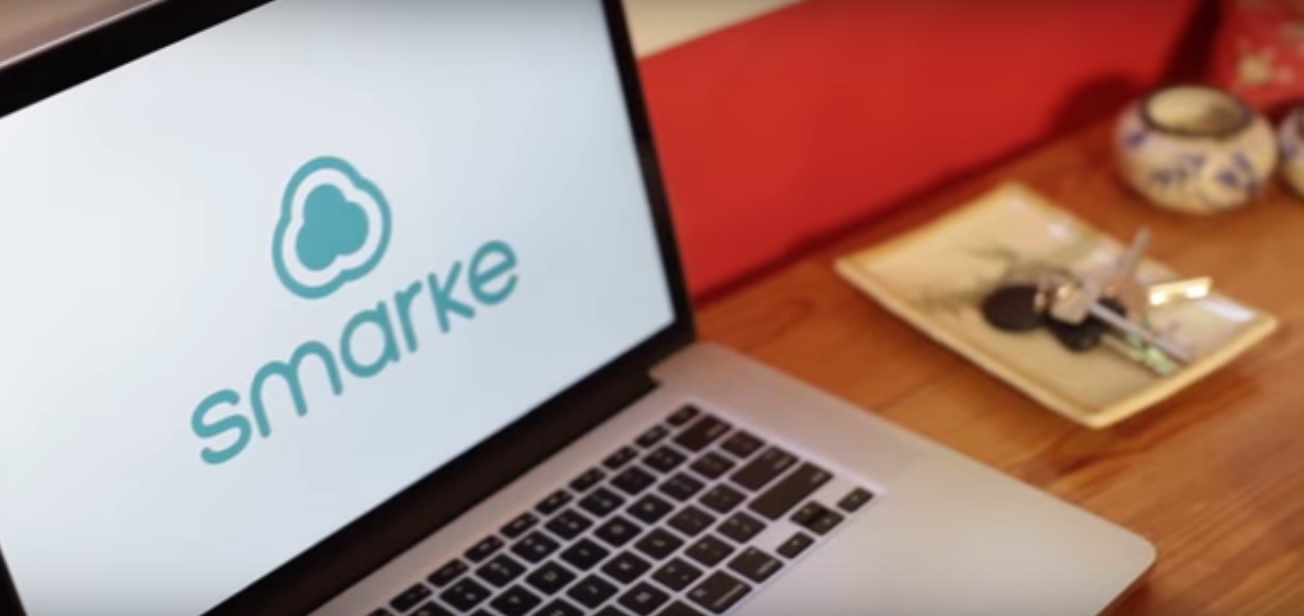Lebanon’s Smarke takes a second look at MENA

After a strongly MENA-backed crowdfunding campaign, Lebanese smart lock maker Smarke is reconsidering their target market.
Smarke (pronounced ‘smar-key’) was founded in 2015 to make a bluetooth door lock, focused on the B2B short-term rental market in Europe - think Airbnb and Homeaway hosts.
Its three founders were accepted into the UK Lebanon Tech Hub accelerator programme in May 2016 but decamped to the UK four months later to gain access to Britain and Europe.
They haven’t commercialized the product yet, but have tested its viability with a European pilot run in November 2016. They received 75 orders from 17 unnamed clients, cofounder and CEO Hady Abdelnour said.
But competition is tough in Europe, and the company is reconsidering a MENA strategy, this time B2C. An Indiegogo campaign saw strong backing from the MENA region, although the money from that campaign is intended for R&D and manufacturing.
Smarke won 50 million Lebanese Pounds (US$33,000) from the Grow My Business competition in 2016, about $400,000 between Kafalat and angel investors, and are looking to raise another $600,000 in seed funding.

A risky business
Abdelnour said they chose Indiegogo over Kickstarter because they had seen a lot of smart lock companies fail on that platform, while companies on Indiegogo succeeded. They also found the terms and conditions on Indiegogo fit them better.
As at the time of publishing Smarke had raised just over $84,000, for a target of $75,000. Last week they experienced some problems with Indiegogo unexpectedly refunding some donors and rejecting some payments. The issue has been settled, but Abdelnour said the campaign was still missing over $15,000 of payments he said had gone through.
In 2015 Indiegogo brought in a refund mechanism, which would allow people with buyer’s remorse to claw back their money during a campaign without having to go to the campaign owner, cap in hand.
Three devices but the key remains
Smarke’s full lock product consists of three devices that can work separately or together.
There is the bluetooth-operated lock which is installed over a normal non-smart version, a wifi-enabled chip for inside intercoms to allow visitors to enter the building when no one is home, and the third device is a keypad, tailored to the shared and managed apartment property B2B market, where users can tap in a single-use code without needing to use the app on their phone.

Though impractical without the smart lock, Abdelnour said it was the chip that set them apart from their numerous competitors in Europe that also sell retrofitted bluetooth smart locks, including Mul-T-Lock’s Entr, Danalock and Nuki.
Furthermore, the original lock and key can still be used if something goes wrong, such as a customer’s phone battery dying.
Bidding on two markets
Smarke is focused on the rental market, as its devices allow property owners to send scheduled access to others who download the app on their smartphone.
“In Europe currently this market size is worth around $200 million,” Abdelnour said. “[Smarke] will keep on focusing on the short rental market for the coming two to three years.”
About 90 percent of their 17 B2B clients are in London and Paris, although he did not disclose where they operated in the shared property market. The remaining 10 percent are divided between the smaller markets of Rome, Amsterdam and Madrid.

Smarke is entering an already mature and crowded market.
Plenty of smart lock ideas have tried to target the shared property market before. Some of them have taken the crowdfunding path, such as Bekey whose crowdfunding campaign on Kickstarter failed in 2015, while others are already working in the short term rental market.
Lockstate, an American company founded in 2004, has partnered with both Airbnb and Homeaway. The Lockstate smart lock works on Wifi, and their cloud based Lockstate Connect option allows users to control their home devices from a computer or smartphone.


